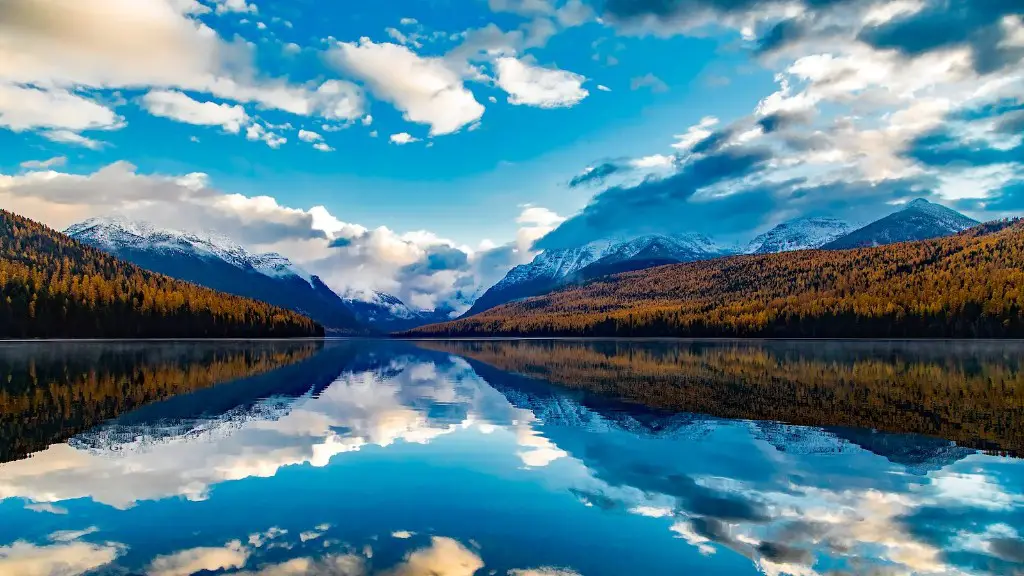The Nile River Meaningful to Ancient Egyptians
The great life-giving river of the ancient world, the Nile River, has captivated humanity since its first discovery. The name “Nile” itself is derived from the Greek Neilos, or valley, which describes the region that the river runs through. For almost six thousand years the Egyptians have relied on the mighty river for sustenance, with many experts believing that the ancient kingdom was built upon its banks.
The Nile was of massive significance to the ancient Egypt of old. Through its many shifting channels and regions, it provided food and resources to a people who did their best to survive the hostile desert climate. Ancient Egyptians were known to make papyrus from the river’s reeds, leave gifts at the temple of the Nile-goddess, Hapi, and even irrigated the lands around them for agricultural purposes.
With such importance placed upon the river, it’s no surprise that Egyptians assigned many deities to the Nile. Hapi, the Nile-god, held great power in ancient mythology, being attributed the role of providing bountiful harvests and abundant floods which sustained the lives of those who dwelled along its path. In some of the earliest carvings and monuments, the Nile was seen to represent a lifeline to the people, with the gods they created in its honor providing them with hope amidst the punishing environment.
In addition to its religious and agricultural authority, the river provided a form of transport. Ships and barques traversed the course of the Nile, allowing goods to be transported up and down the length of Egypt, facilitating the trade and communication of ideas along its waterways.
The river also supplied the ancient Egyptians with the perfect opportunity for spiritual rejuvenation. The easternmost and westernmost regions of the river were connected to two important “duat” or afterlife realms, from which Egyptians derived much of their spiritual healing and practices.
The Nile’s Role in Politics
Throughout Egypt’s turbulent history, the Nile played a major role in its political life. Ancient kings, pharaohs, and warriors sought to seize control of the river and its networks of commerce, while those at the bottom of the hierarchy strove to associate themselves with the powerful deity represented by the Nile, in their attempts to counter the authority of their superiors. Dynasties rose and fell, with changes of leadership and governance shaping the Nile’s course.
The Nile was at the heart of the ancient Egyptian dynasty’s control of the land and its people. Numerous battles and wars were conducted along its shores. Following the defeat of the Hyksos, the dominant kingdom that had claimed much of the region’s power, the Greeks and Romans both sought dominion over the river, eventually colonizing much of its banks.
The river was known to be so vital, that foreign forces sought to control it at any cost. Napoleon Bonaparte’s French army sought to capture the historical sites along the Nile during their campaign in Egypt in 1798, aiming to gain the lure of access to the resources associated with the river. But, with the infamous Battle of the Nile, the British succeeded in containing the French onslaught.
The Nile: Symbol of Life and War
The Nile has served to connect peoples and cultures since its ancient beginnings. Today, Egyptians, Sudanese and Ethiopians have found a common identity in the river, with monumental constructions such as the Aswan High Dam being developed to ensure its power and supply across the region.
The Nile is perhaps best known as a symbol of war and life. The river represented something of a lifeline to Egyptians of old, as well as a powerful force forcing them to constantly seek to defend their homeland. As new dynasties formed, the river served to both paralyze and catalyze the political and spiritual struggles of those seeking to control it.
From the ancient pyramids and temples that are now iconic historical sites, to more modern projects such as the Aswan High Dam, the Nile has long been associated with great events and achievements. This is no small irony, considering that without the river itself, such monumental accomplishments would have never been possible.
Nile and Modern Age
As we move into the modern age, the Nile continues to provide us with a better understanding of the region’s history and culture both past and present. There is much potential in the river’s waters. Many environmental activists are fighting to reduce the devastating effects of modern construction along the banks of the Nile, advocating sustainable methods that can at least slow down the destruction of this hallowed ground.
In addition to its ecological value, the river is home to some of humankind’s greatest wonders. The Great Pyramids of Giza and the tombs at Luxor, among many others, are pillars of human achievement, exceptional accomplishments made possible by the Nile’s aquatic abundance.
Egyptologists and experts in ancient history continue to study the river and its fascinating relics, seeking to unlock the secrets of how such a powerful civilization was able to thrive for thousands of years by extracting the nourishment of the river.
Equitable Use of the Nile’s Resources
As we contemplate the importance of the Nile to civilization, one must recognize that its power and influence are not equally shared by all. Nine countries depend on the Nile’s Waters, with Egypt, Sudan and Ethiopia accounting for 65% of the river’s resources. The other six nations, including Burundi, Rwanda, Tanzania, Kenya, Uganda, and the Democratic Republic of Congo, must compete for the remaining 35%.
Given the highly contested nature of the river’s resources, much of the conflict between states is attributed to the struggle over its life-giving waters. This can be seen clearly in the fight between Egypt and Ethiopia over the Nile’s Great Renaissance Dam, with Ethiopia’s plans to construct hydroelectric power plants for its citizens who have to remain connected to the river for access to freshwater.
The equitable use of the Nile’s resources is a major concern for the African Union, who have suggested the establishment of a centralized African Water Authority, a move that would facilitate the usage of the Nile’s waters in a harmonious and equitable manner.
The Symbolic Role Of The Nile
The Nile’s rich history can be observed in many of the religions, myths, legends and folklore that permeate the cultures and belief systems of the surrounding nations. In Ancient Egyptian mythology, the Nile is represented as a living entity, with the goddess Hapi blessing it with the gift of fertility. In Traditional African Cosmology, the river is seen as a powerful spiritual force, the provider of life and an expression of well being.
For many Africans, the Nile is seen as a connection to their ancestors, symbolizing the power of their collective wisdom and experience, and the reminder of their deep roots and strong identity. This is contrasted with the modern perspective of the Nile, which sees the river as a source of economic and technological progress.
As we move forward, it is important to realize the impact of the Nile. It has shaped our civilization, from the way we developed politically, culturally and spiritually, to the way we interact with our environment today. It is essential to ensure the equitable use of its resources, so that its legacy may continue to serve its numerous citizens, past, present and future.

